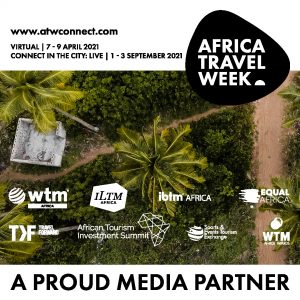By Taiye Olayemi
The Lagos State Government says its 2025 International Climate Change Summit (LICCS) will focus on unlocking sustainable financing and innovation to strengthen Africa’s coastal resilience and blue economy.
The Commissioner for the Environment and Water Resources, Mr Tokunbo Wahab, said this on Thursday at a news conference held in Lagos, ahead of the summit scheduled for Nov. 6 to Nov. 7.
Wahab said the summit, with the theme: “Blue Economy, Green Money: Financing Africa’s Coastal Resilience and Ocean Innovation,” would provide a strategic platform for governments, investors and global development partners to develop actionable solutions to climate-related challenges.
“Lagos, as a coastal megacity, faces increasing threats from flooding, coastal erosion, and rising sea levels, but we are determined to turn those challenges into opportunities for economic growth and environmental sustainability.
“The summit embodies our belief that vulnerability can be transformed into vision, and that Lagos’ coastal challenges can become a source of economic and ecological strength,” he said.
Wahab said the 2025 edition would attract over 1,200 delegates from across Africa and beyond, including global chief executive officers, financiers, researchers, and young innovators, all focused on mobilising resources for Africa’s climate resilience.
According to him, the summit will highlight four key areas: the blue economy, green finance, innovation and youth empowerment, and partnerships.
He said that these are aimed at creating long-term transformation for Lagos and other African coastal cities.
Wahab described the event as an avenue to position Lagos as Africa’s climate leadership hub, ahead of the COP30 global climate conference.
“Our goal is to make Lagos the climate capital of Africa, a city that not only adapts to change but leads it,” he said.
He appreciated the support of partners such as Eko Atlantic, NIMASA, the International Finance Corporation (IFC), the African Development Bank (AfDB), and the United Nations Development Programme (UNDP), among others.
The commissioner noted the roles of its partners in advancing sustainable development in Lagos.
Wahab called on the media, private sector, and the global community to actively engage in the summit, which, he said, would serve as a launchpad for innovative financing models for Africa’s climate resilience.
“Through this summit, Lagos is sending a clear message: Africa is not waiting to be rescued; we are ready to lead,” he said.
Earlier, the Head of Corporate Communications, Eko Atlantic City, Ms Joanna Fabikun, outlined the city’s contributions to coastal protection and environmental sustainability.
She described the city as a model for resilience against climate-induced erosion in Lagos.
Fabikun, who narrated how the city was reclaimed, said the Eko project was born out of the need to tackle the severe coastal erosion that had threatened Victoria Island and parts of Lagos for decades.
Speaking on the structure of the summit, Mr Michael Bankole, Technical Lead for the summit, noted that the first day would feature different technical sessions and high-level panel discussions with international participation.
Bankole said this was aimed at addressing the economic, environmental, and policy implications of climate change.
“The two-day programme will have stakeholders share insights on climate financing, economic resilience, and sustainable development.
“The discussions will also focus on how to catalyse market-driven climate solutions, strengthen economic systems, and influence policy direction in line with the Federal Government’s climate adaptation agenda,” he said.
Bankole noted that President Bola Tinubu’s administration had shown commitment to addressing climate-related economic issues.
He said that the summit would complement such efforts by generating actionable strategies for implementation at the subnational level.
Also, the Director-General of the Nigerian Maritime Administration and Safety Agency (NIMASA), Dr Dayo Mobereola, assured the Ministry of the agency’s readiness to partner with it in hosting the event.
Mobereola, who was represented by the Deputy Director of the Deep Blue Project at NIMASA, Mr Tuti Hebron, said the summit would provide opportunities for entrepreneurs to harness the vast potential of the blue economy.
He said that the platform would serve as an eye-opener to the world on what Lagos had to offer in areas such as coastal tourism, fishing, and marine resource development, as well as its potential for wealth creation and job opportunities.


